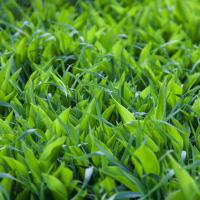What to do if your cat eats a toxic plant
As a cat owner, it is important to ensure that your furry friend does not come into contact with any toxic plants. However, accidents can happen, and if you know or suspect that your cat has eaten a toxic plant, it is important to act fast.
Step 1: Identify the plant
The first step is to try and identify the plant that your cat has eaten. This can be a challenge, especially if you have a lot of plants in your home or garden. However, it is essential that you identify the plant in order to determine the level of toxicity and the appropriate course of action.
If you are not sure what plant your cat has eaten, try taking a picture of the plant and bringing it to your vet. Alternatively, you can use online resources such as the ASPCA's Animal Poison Control Center website to help identify the plant.
Step 2: Observe your cat
Observe your cat for any noticeable changes in behavior or physical symptoms. Some common symptoms of plant poisoning in cats include vomiting, diarrhea, weakness, lethargy, and loss of appetite.
If you suspect that your cat has eaten a toxic plant and is displaying any of these symptoms, it is important to seek veterinary care immediately.
Step 3: Call your vet
Call your vet and let them know that your cat has eaten a toxic plant. Inform them of the type of plant that your cat has eaten (if known), and any symptoms your cat is displaying.
Your vet may instruct you to bring your cat in for examination and treatment, or they may be able to provide guidance over the phone. Whatever the case, it is important to follow your vet's instructions carefully in order to ensure the best possible outcome for your cat.
Step 4: Prevent future incidents
The best way to prevent your cat from eating toxic plants is to keep them out of reach. Place plants on high shelves or in areas that your cat cannot access.
If you are unsure about the toxicity of a plant, do your research before bringing it into your home. Many common household plants can be toxic to cats, including lilies, aloe vera, and ivy.
Conclusion
If you suspect that your cat has eaten a toxic plant, the most important thing is to act fast. Identify the plant, observe your cat for symptoms, and call your vet for guidance. By taking swift action, you can help ensure the best possible outcome for your furry friend.

 how many times do yo...
how many times do yo... how many planted tre...
how many planted tre... how many pine trees ...
how many pine trees ... how many pecan trees...
how many pecan trees... how many plants comp...
how many plants comp... how many plants can ...
how many plants can ... how many plants and ...
how many plants and ... how many pepper plan...
how many pepper plan...































